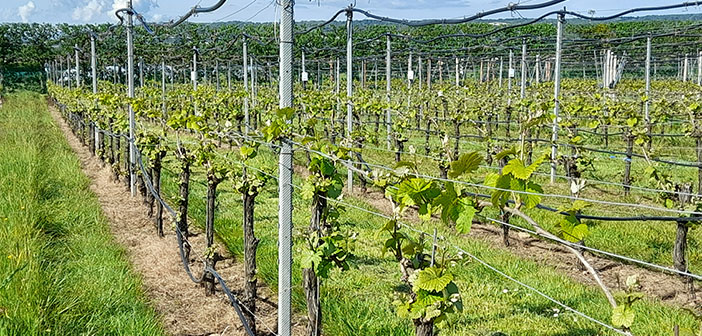Four companies using cutting-edge technology to develop sustainable gardening have been awarded £500,000 to market their prototypes through Growing Kent & Medway.
Two research projects will harness automation, robotics and artificial intelligence to control pests and diseases in fruit and grape crops. Two others will use advances in biotechnology to test horticultural crop by-products to create new sustainable food ingredients.
The funding was awarded through a Prototyping and Demonstrator competition organised by Growing Kent & Medway, which is designed to develop and bring new technologies to market in the horticultural food and drink supply chain.
Dr Nicky Harrison, Director of Growing Kent & Medway, said: “This funding competition is designed to support the development of innovative, business-focused technology that has the potential to be applied in a real-world commercial setting.
“These collaborative and innovative projects demonstrate how advances in agtech can help make our food systems more sustainable. From using energy more efficiently and reducing inputs such as crop protection chemicals, to increasing productivity and reducing food waste.”
Machine Learning for Disease Detection in Vineyards
Artificial intelligence and machine learning will be used to analyse satellite imagery to detect and predict the presence of plant diseases in UK vineyards. The project aims to identify important fungal diseases, such as grey mould, powdery mildew and downy mildew, more effectively than current detection methods using humans or drones. The nine-month project, led by Deep Planet, will be carried out in collaboration with leading UK wine producers and the NIAB Wine Innovation Centre.
“We have applied for the Prototyping and Demonstration Fund to help deliver climate change resilience to vineyards in the Kent and Medway region,” said Sushma Shankar, co-founder of Deep Planet Ltd. “Our project will enable UK vineyards to proactively mitigate the impact of disease by detecting the disease and employing appropriate management strategies.”
“This will help growers reduce their costs in mitigating the disease, and will improve grape yields and quality. With the UK wine industry growing so rapidly, the benefits of this project will be compounded as we see it integrated into regenerative and sustainable vineyard management practices.”
Professor Dame Jessica Corner, Regional Director of the Kent Institute’s Power of Places Fund, said: “The projects announced today are excellent examples of how the Kent Institute’s Power of Places Fund is being used to enable research to be applied in a way that has an impact on the economy and society. It is exciting to see how robotics and AI can be used to address sustainability and reduce reliance on pest control chemicals, which has the potential to help grow Kent’s agricultural economy and influence industry standards.”
The Prototyping and Demo Fund competition closed in January 2024. Applicants were required to submit an operational demonstration with a clear plan for scaling the technology and bringing it to market.
For more information about the four winning projects, visit growingkentandmedway.com.


